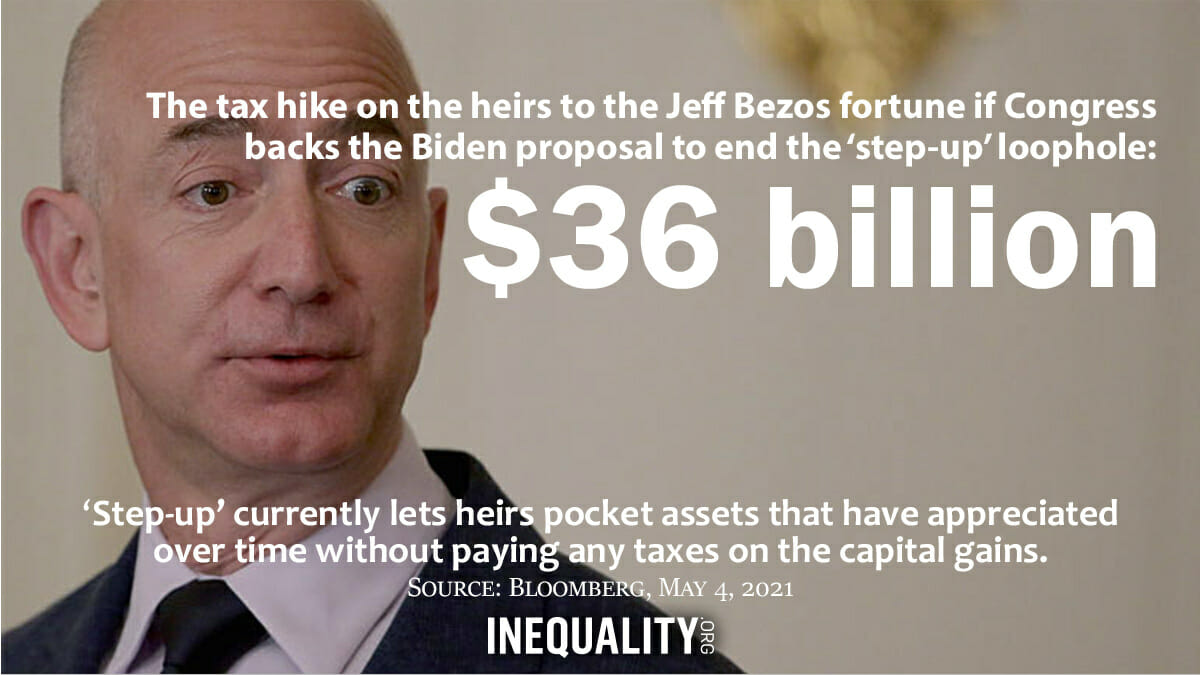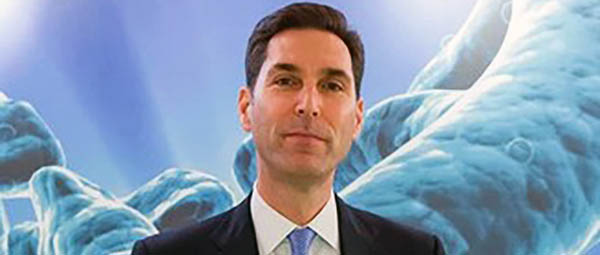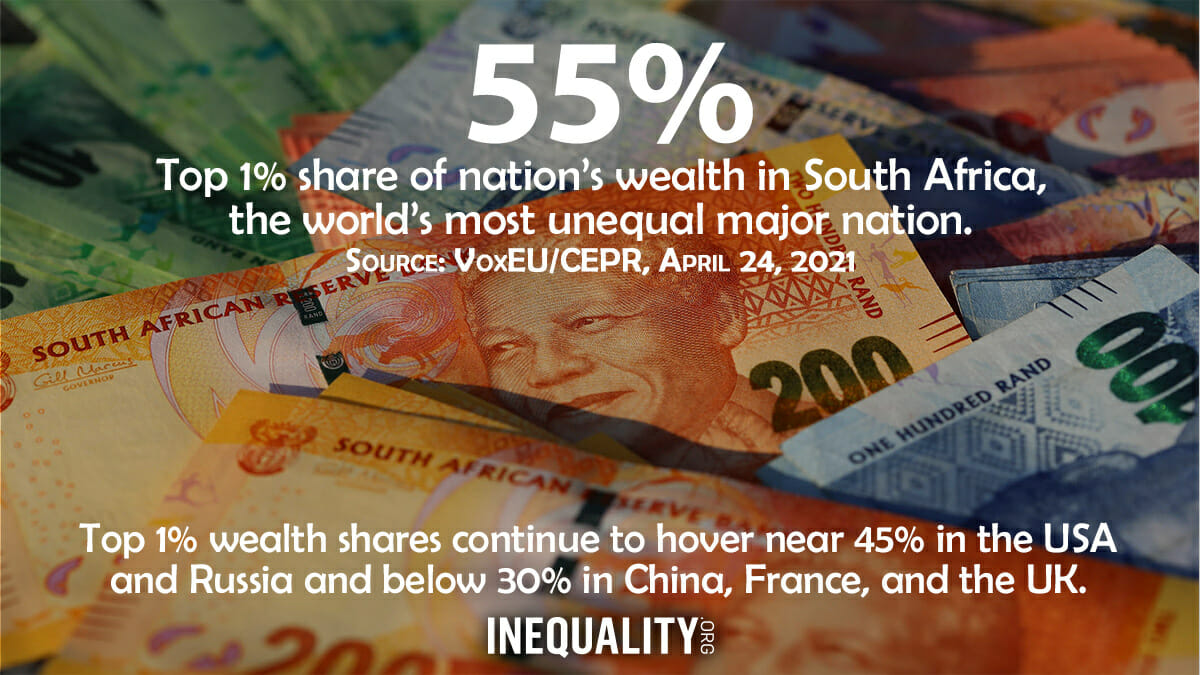| THIS WEEK |
Millions of frontline workers in the United States, for over a year now, have been putting their lives at risk. Major U.S. corporations, meanwhile, have ignored that sacrifice and actually inflated the already staggering gap between CEO and worker pay.
This disgraceful corporate conduct will get the national spotlight this week as our Institute for Policy Studies inequality team releases its 27th annual Executive Excess report. The focus: the low-wage employers that rigged pay rules to hand windfalls to CEOs while their workers lost jobs and income.
The report’s lead author, Sarah Anderson, will join a webinar tomorrow, hosted by our partners at Patriotic Millionaires. Abigail Disney, the heiress who's become a sharp critic of CEO pay, and Dan Price, the CEO known for slashing his own compensation, will also participate. To join the conversation, please register online. Thanks!
Chuck Collins and Rebekah Entralgo,
for the Institute for Policy Studies Inequality.org team
|
|
| |
|
| INEQUALITY BY THE NUMBERS |
 |
|
|
|
| |
|
| FACES ON THE FRONTLINES |
 |
| Land Defenders Stand Against Corporate Greed |
| Indigenous leaders in Guatemala and their allies across the globe are calling on the Vancouver-based mining company Pan American Silver to halt all community interference in the Central American country. The activists together delivered a petition with over 4,000 signatures that urges company executives to respect the indigenous Xinka people’s right to be freely consulted, without threats and violence, and immediately cease interference in their communities. IPS associate fellow Jen Moore has more on the efforts to defend indigenous land from corporate greed. |
|
| |
|
| WORDS OF WISDOM |
 |
|
|
|
| |
|
PETULANT PLUTOCRAT
OF THE WEEK |
 |
| Your-Money-or-Your-Life Gets a Raging Covid Spin |
| Just pay us for protection, the gangsters in old movies always smirk as they shake down storeowners, and you ain’t got nothing to worry about. Our much more lucrative modern-day protection rackets don’t need gangsters. They rely on “intellectual property” protections. Last week, a Biden administration pressured by health activists and developing nations gave the world’s most rapacious intellectual property racket — Big Pharma — its biggest challenge yet. To speed vaccine distribution worldwide, the administration announced support for waiving patent protections on Covid-19 vaccines, a move that drew a fast and fierce response from Big Pharma’s top trade group. Waiving Covid patents, PhRMA CEO Stephen Ubl bloviated, “will not save lives” and only “weaken already strained supply chains.” Cheering Ubl on: the seven execs at Pfizer, Moderna, and other drug giants who’ve become billionaires off federal Covid contracts. Ubl himself comes cheap. His services run Big Pharma a mere $2,245,150 a year. |
|
| |
|
| BOLD SOLUTIONS |
 |
| Postal Pilots to Curb Financial Predators |
| At a recent press conference, Rep. Alexandria Ocasio-Cortez described a common scene at the check-cashing outlets that dot her Bronx neighborhood. Asked the lawmaker: “Imagine showing up and having 10 to 20 percent of your check taken away from you. That’s diapers, that’s baby formula, and that’s food that’s taken out of the hands of families just to cash a check.” Ocasio-Cortez has long advocated for postal banking as an affordable, trustworthy alternative to predatory financial firms. She and 32 other House members are calling for federal funding for postal banking pilot programs in five rural and five urban communities. |
|
| |
|
| GREED AT A GLANCE |
 |
|
|
|
| |
|
| TOO MUCH |
 |
| Bill, Melinda, and the Burden of Grand Fortune |
| Even the tritest of old adages can speak truth. Consider, for instance, the time-worn maxim that immediately comes to mind whenever we see the awesomely affluent stumble in their personal lives. Just another reminder, we tell ourselves, that “money can’t buy happiness.” Last week, we saw another such stumble. America’s most celebrated wealthy couple, Bill and Melinda Gates, announced they were divorcing after 27 years of what now seems to have been less than marital bliss. Money, apparently, still can’t buy everything that matters. Even money by the billions. The world’s three richest — Bill Gates, Jeff Bezos, and Elon Musk — have all now divorced. Does this latest billionaire break-up have something profound to tell us? Inequality.org co-editor Sam Pizzigati has more. |
|
|
|
| |
|
| MUST READS |
This week on Inequality.org
Salvador G. Sarmiento, The Workers They Called ‘Non-People.’ The Biden Administration has a duty to acknowledge the humanity of the workforce they’ve deemed “essential.”
Elsewhere on the Web
Kate Pickett, What price a life? Social Europe. Income inequality tramples roughshod over the idea that everyone’s life has equal worth and deserves equal recognition.
Jason Lemon, Fourth Stimulus Check? Billionaires' Pandemic Profits Could Easily Fund Two More Payments, Newsweek. Right before the pandemic, only one American held a net worth of more than $100 billion. Today, six U.S. billionaires hold net worths over that bar.
Dave Zirin, Sports Unions Come Together to Fight for the PRO Act. As the push for the PRO Act continues, players unions in the major sports foray take a big leap and come out strongly in support of the PRO Act.
Matt Huber, Rich People Are Fueling Climate Catastrophe — But Not Mostly Because of Their Consumption, Jacobin. If we really want to understand how rich people contribute to climate change, we shouldn’t just look at their personal carbon footprint. We should ask how they became rich.
Tarpley Hitt, Billionaire Is Buying Up Small Colorado Town — and Locals Are Freaked, Daily Beast. The more wealth concentrates at society's tippy top, the worse life becomes for more people, even the somewhat affluent.
Ginny Whitelaw, If Executive Pay Were Like Mashed Potatoes, Forbes. Our future will depend on how well we can gauge what’s enough and take only a fair share.
William Darity Jr., The True Cost of Closing the Racial Wealth Gap, New York Times. Policies like forgiving debt for all student loans and giving baby bonds to the whole population won’t be nearly enough to achieve racial wealth parity.
Amir Lebdioui, Forever unequal? Mold-breaking strategies to reduce inequality in Latin America, LSE. Economies will always only be as strong as the most vulnerable within them.
Dylan Grundman O'Neill, Bold Progressive State Tax Victories Provide Bright Spots in Difficult Year, Institute on Taxation and Economic Policy. Hopeful steps forward to a more equal future. |
|
| |
|
| A FINAL FIGURE |
 |
|
|
|
| |
|
| BE THE 1% (NO, NOT THAT 1%) |
 |
Our goal for 2021: that 1% of our Inequality.org subscribers become monthly sustainers and help grow our newsletter and research efforts. Be the 1%, for as little as $3 a month! |
|
|
|
| |
|
|